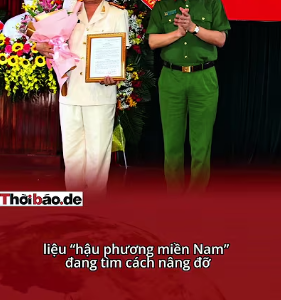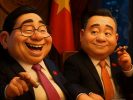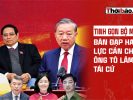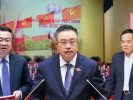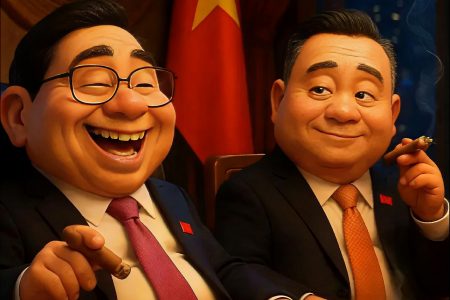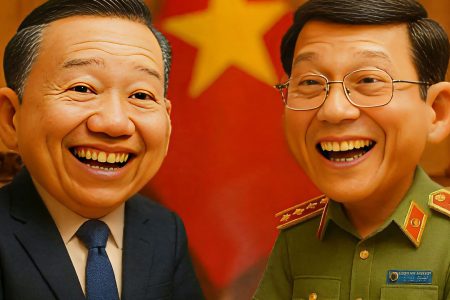
Vietnam prepares to elect the country’s highest legislative body National Assembly and People’s Councils at all levels on May 23. During this time, state media agencies have stepped up propaganda and rejected what they called “online misleading rhetoric” about voting. However, the common characteristics of these arguments all promote a non-democratic election.
The manifestations of non-democratic elections
Elections in Vietnam are undemocratic, which is evident in the disapproval of political dissidents from entering elected bodies. The political opposition’s candidacy was blamed for taking advantage of the candidacy to oppose the state.
To justify this, Party theorists invoke Article 4 of the Constitution which states “The Communist Party is the leading force of the state and society” to ensure that its members have an overwhelming majority in the elected bodies.
This represents an authoritarian way of thinking and behaving, giving itself a privilege to lead the state and society without going through the will of the people.
Second, the ruling Communist Party of Vietnam (CPV) increases control of the media before and after elections, by imposing administrative fines and criminal charges to individuals or organizations that spread negative information about the election. The media controls in the election also lead to voters accessing untrustworthy or biased information about ruling party-backed candidates.
Third, Election Committees are not independent. Specifically, the Provincial Election Commission is responsible for directing and organizing local elections, which is chaired by the Secretary of the Provincial Party Committee – while the Secretary of the Provincial Party Committee is also a candidate running for and be structured to be the head of the National Assembly Delegation of that province.
A screenshot of the article on the People’s Army website about the 2021 National Assembly and People’s Council elections.
The election is the foundation of a democratic institution. However, elections do not mean there is democracy. Elections still take place periodically in authoritarian countries, but only to show off the form. In Vietnam, the number of voters always exceeds the 90% threshold, without the fact that voters do not know well about the candidates, that is they have to vote, even get someone to vote for them. The election campaigning of candidates is also very formal and limited, organized by the government, with a small number of citizens selected and appointed by the government to attend.
What is a free and fair election?
In order for elections to show the will of voters, they must be “free and fair.” In order to make clear between the real or pseudo elections, in 1994 the World Parliament Union adopted the Declaration on the criteria of free and fair elections.
“Free election” means that everyone who has the right to vote has the right to register and vote according to their freedom of choice. An election is considered “free” when people can decide whether to vote and freely vote for another candidate or party without fear or intimidation.
“Fair election” means that all registered political parties have equal rights to run, lobby for voters, and hold meetings or rallies. This gives them a fair chance to persuade voters to vote for themselves.
In comparison to this criterion, the election of Vietnam is clearly lacking freedom and fairness. Voters are only allowed to freely vote within the framework of candidates approved by the Party. Voting in this situation is described by the term „no mother to vote for someone“ because it is just the legitimization of the ruling’s previous personnel options.
The lack of freedom is also reflected in the government’s view of voting as not only a right but also a duty of the citizen. Citizens have the responsibility to vote in an electoral environment that is not politically competitive, resulting in a citizen’s vote as a devotion to the “will of the party” if they do not want to be classified as “political trouble makers.”
Inequality in the election is reflected in the fact that organizations and parties outside the Communist Party of Vietnam are outlawed. The voting playground is only a privilege reserved for members of the Party and a small number of non-Party members who were also approved by the Party.
Therefore, it can be said that the election in Vietnam still takes place periodically but does not show that Vietnam is a democratic country guaranteed by a free and fair electoral process. Citizens are limited in the process of participating in candidacy and accessing information, the opposition party is prohibited from running, and the Election Commission is dominated by the ruling party. This is just a fake election aimed at flaunting formal democracy because it is a lack of freedom and fairness.
Thoibao.de (Translated)





